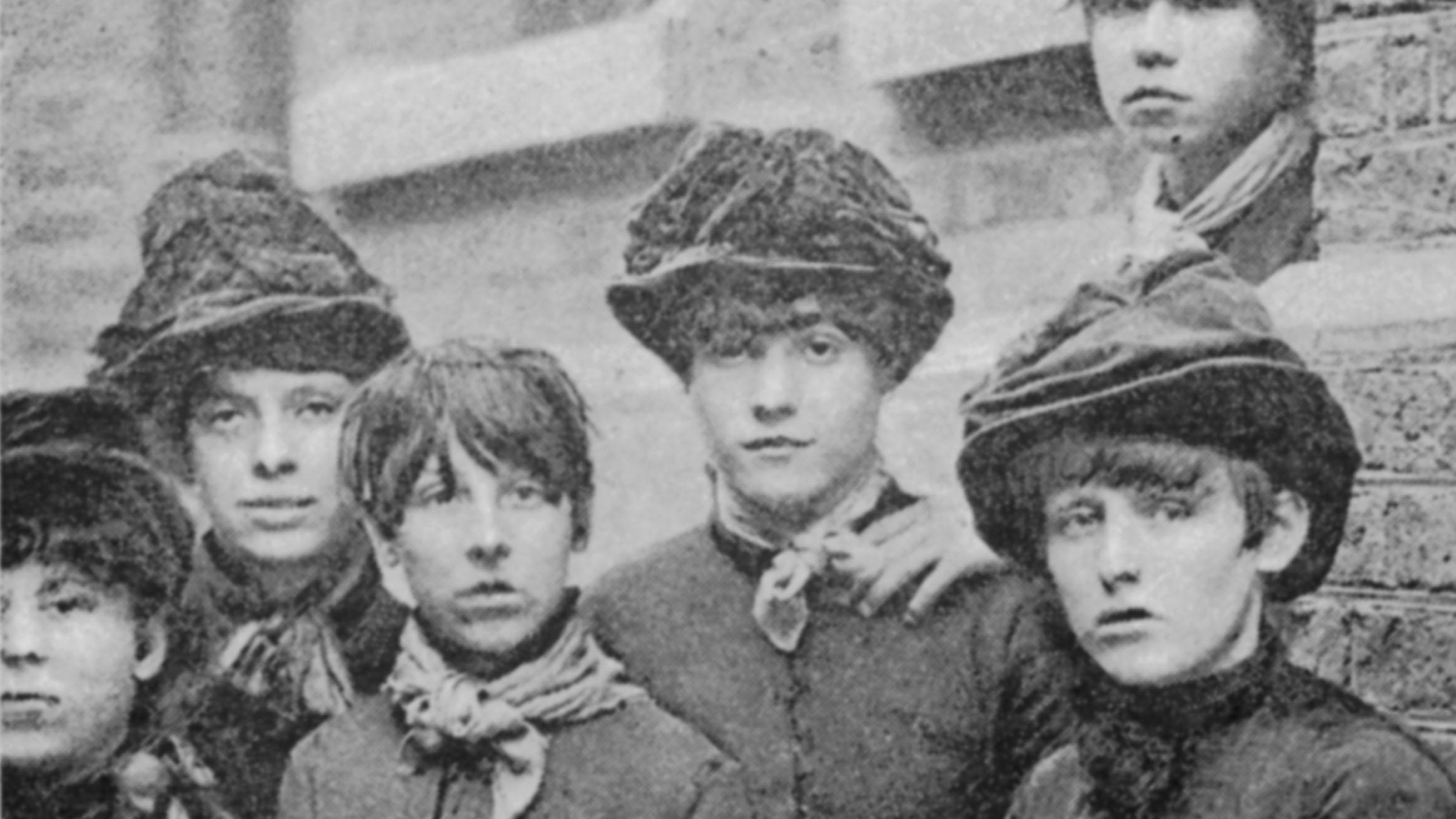I began to piece together what had really happened. The firm first tried to force the women to condemn Besant. They refused, smuggling out a warning note: ‘Dear Lady, they have been trying to get the poor girls to say it is all lies that has been printed and to sign a paper…we will not sign…’
Bryant & May then sacked one young woman as a scapegoat, and the strike began. The strikers elected six women to put their terms – reinstatement of their colleague, an end to fines and a separate dining room away from the phosphorus fumes.
But Besant was not there. Her journal shows she was working in her offices when a deputation of matchwomen arrived to tell her about the strike – which she thought a mistake. The women went several days without money but kept up a cheerful solidarity: “I can pawn this for you”; “I’ll lend you that.”
This was typical of women known for their strong sense of identity. They were already famous in the East End for their hairstyles, high-heeled boots and huge hats trimmed with bright feathers, which they bought and shared through communal Feather Clubs.
One Poplar resident remembered the hatpins: “The matchgirls… when in any trouble, did not hesitate to use these horrible long hatpins to defend themselves.”
When the striking women marched to parliament, the sight of poor women in smart streets caused uproar: but they held their heads high and impressed MPs with their eloquence. Finally the firm was forced into ungracious defeat. The women’s demands were met and they formed the largest female union in the country.
Advertising helps fund Big Issue’s mission to end poverty
It’s no coincidence that waves of strikes followed, including 1889’s Great Dock Strike. The matchwomen had shown other exploited workers the way. Still historians dismissed the matchwomen’s strike as minor and unimportant. Others knew differently: in the throes of the Dock Strike, I found that leader John Burns had urged a mass meeting to “…stand shoulder to shoulder. Remember the matchgirls, who won their fight and formed a union”.
Matchwomen struck again in support of the dockers, and during the victory procession “… up came the dockers… Then a large contingent of women… match-makers, among others, advanced like a moving rainbow, for they all wore… huge feathers of many colours”.
They didn’t stop there but recruited women from jam factories and confectionery works at meetings with tea and cake and Irish music. These were the mothers of the entire modern labour movement, and Labour Party.
The annual Matchwomen’s Festival will celebrates with a proper knees-up. Frances O’Grady, TUC leader and matchwoman fan, spoke at the inaugural event as did the late former Labour MP Tony Benn and left-wing commentator Owen Jones. We had music-hall songs, Irish music, a matchwoman’s hat workshop; comics, poets and bands in the evening, and children’s events including readings by Michael Rosen. You can join us to celebrate the wonderful matchwomen at the 2018 festival.
Louise Raw is author of Striking a Light: The Matchwomen and their Place in History and director of the Matchwomen’s Festival.
Advertising helps fund Big Issue’s mission to end poverty
Pic: © Chronicle / Alamy Stock Photo
Introducing RORA Jobs and Training
Whether you’re in work, currently unemployed, or worried about your future job security, Big Issue RORA Jobs & Training is here to help. Search our latest jobs, register for alerts, browse training courses and find your next role today.
Find out more 




